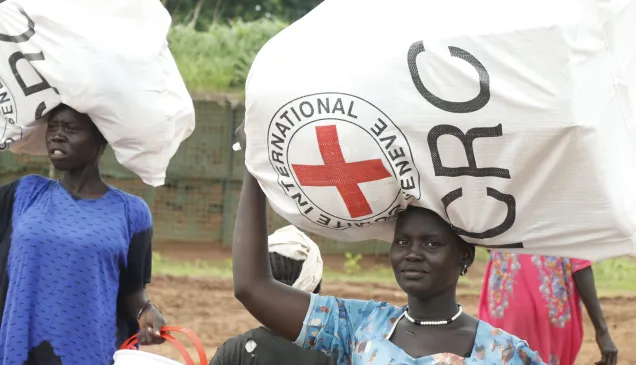Keeping livestock healthy allows communities to continue to sustain themselves.
“In a country with so many conflict dynamics, you can preventively move with your livestock. You cannot do this with your crops," says Ada Jacobsen, the ICRC livestock specialist.
Local herders gather their cattle in a vaccination area during an ICRC cattle vaccination campaign in Maura Hills, former Jonglei state.
South Sudan: Where wealth is counted in cattle, not cash
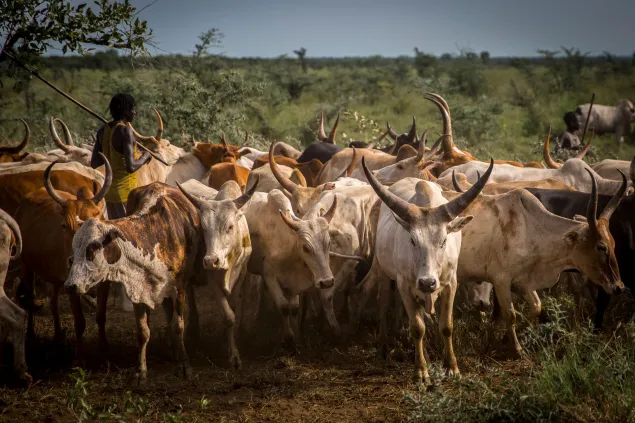
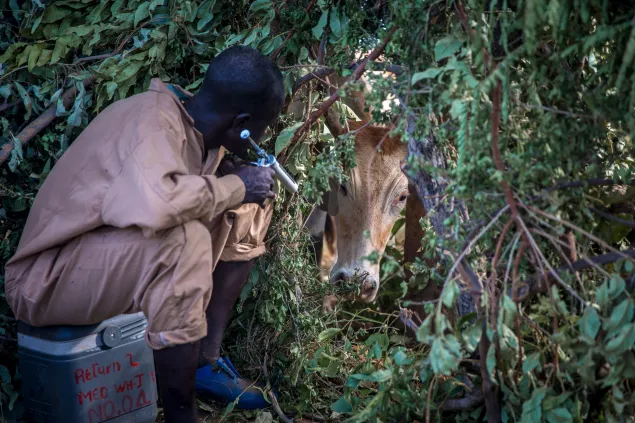
“Without livestock in South Sudan, it’s like you’re not a human being. It’s like you’re not South Sudanese," says Joseph Tongun Philimon, an ICRC veterinarian.
Healthy livestock can also help reduce tensions between tribes when, for example, one flock of livestock becomes sick putting that community’s health and welfare in peril.
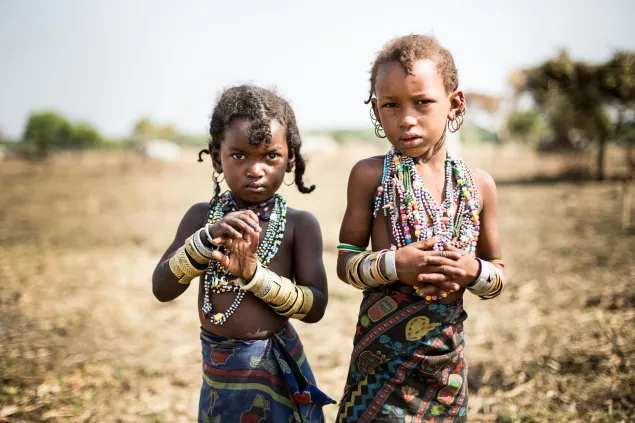
The ICRC is working with communities across South Sudan. One of them is the nomadic Fallata tribe.
“We dress like this for beauty because this is our culture," says Kadija, a grandmother in the Fallata nomadic tribe.
Halima and Yeda travel with the rest of their tribe together with their cattle, sheep and goats.
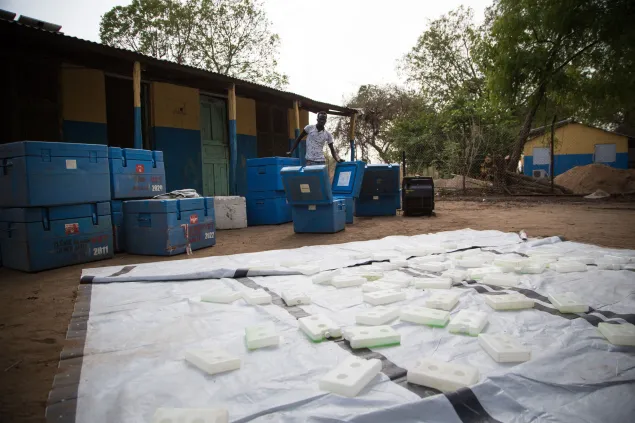
An important part of the livestock program is to keep the vaccines cold, which can be a challenge with limited access to electricity.
With the help of solar panels and generators, cooling elements are prepared. They can keep the vaccines cold for 4-5 days inside the cool box.
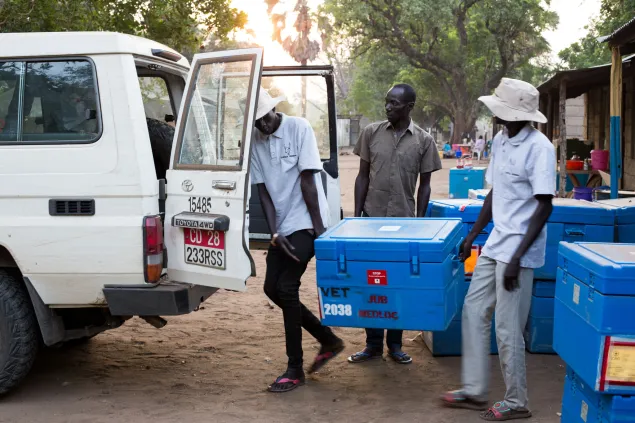
In February and March 2018, 50,000 cattle and 10,000 sheep and goats were vaccinated in and around Udier in South Sudan’s Upper Nile State.
This is one of the activities in the livestock program in South Sudan.
The ICRC vaccination team leave early in the morning to reach the cattle camps that are often located in remote areas.
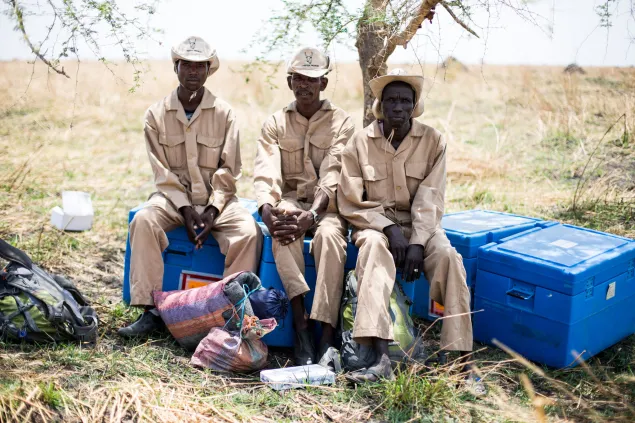
“I have learned about all the different drugs and I receive a small fee from cattle owners when we give them vaccines and the drugs. I am 100 per cent satisfied with the ICRC because since we started the vaccination, the cattle has been very healthy," Issa Usman (in the middle) says.
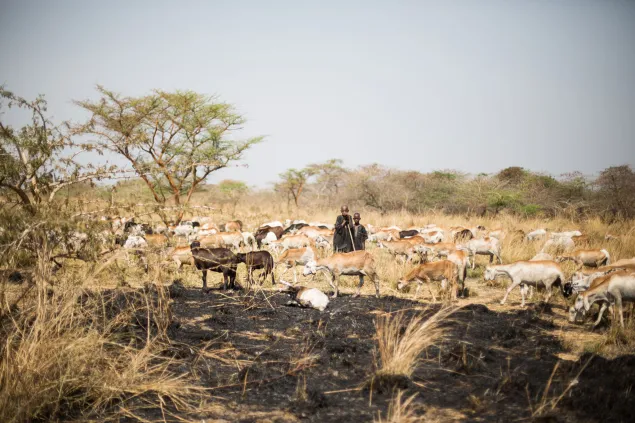
The ICRC vaccinates and treats livestock based on three main pillars. The first one concerns income generation as cattle can be seen as a stable financial asset and “mobile bank account”. Most people keep cattle and sell animals to pay for things they need, like school fees or food. The second pillar is about social life, as throughout South Sudan getting married implies paying dowry ranging from ten to 100 head of cattle. The third pillar is food production as many children are fed on goat milk.
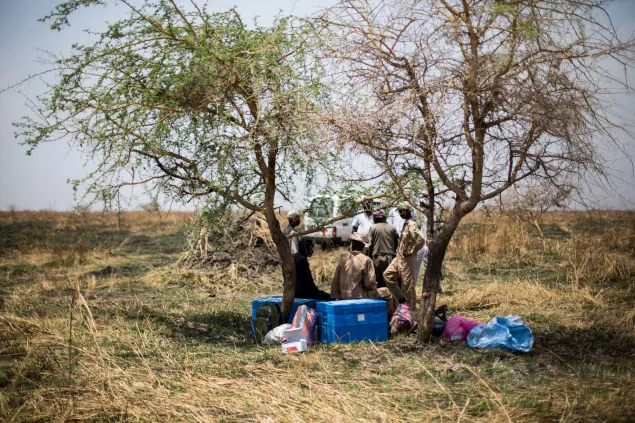
“We will send someone to get the camels, so we can bring these boxes to the camp," Issa explains.
He is one of the “Community Animal Health Workers” who work with communities to treat sick animals and carry out preventive vaccination campaigns. They receive refresher training from ICRC veterinarians to improve their knowledge and practices.
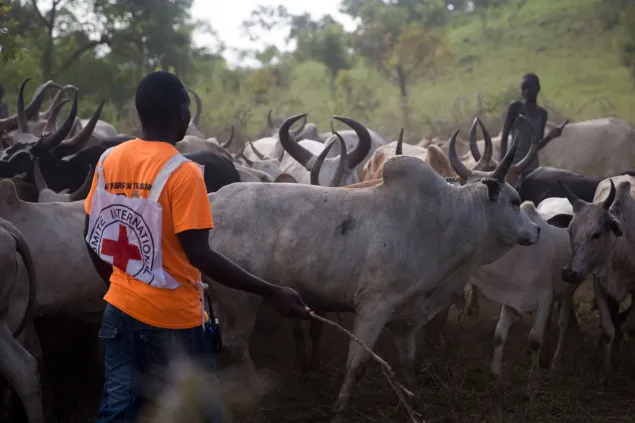
Decades of armed conflict continue to undermine veterinary services in South Sudan.
It increases the risk of epidemics, parasites, wounds and health issues that hamper the production and reproduction of livestock.
For the past 30 years, the ICRC has implemented Livestock projects to mitigate these risks.
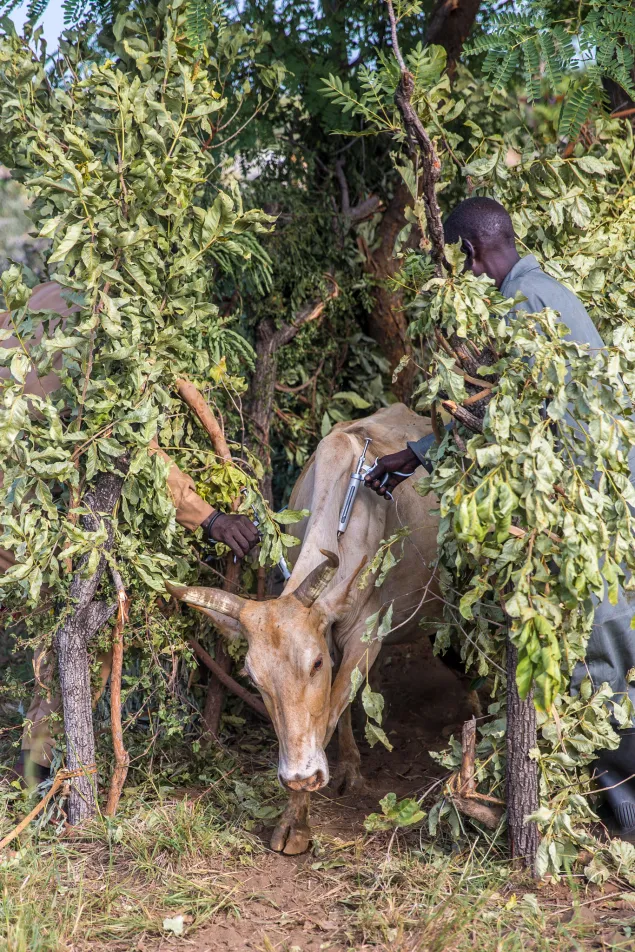
The ICRC is working with the Ministry of Agriculture and Animal Resources and Fishing (MAARF) to provide training to “Community Animal Health Workers” (CAHWs) who work with communities to treat sick animals and carry out preventive vaccination campaigns.
In some places, the livestock are channeled through a specific corridor to get the vaccines.
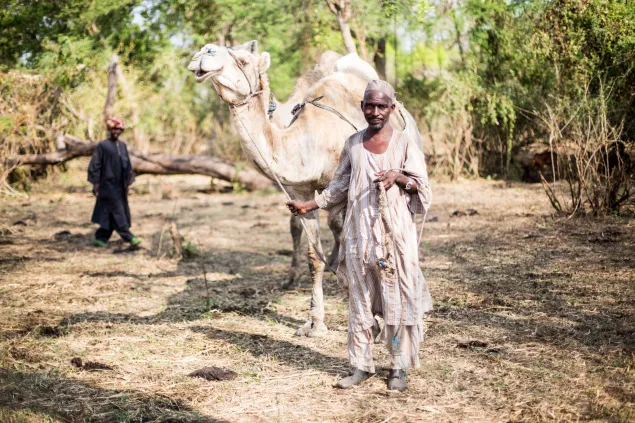
“We have learned about the different diseases since we were young because we have always moved with the animals. When the ICRC came, we were very interested because they were presenting a treatment for the same diseases that we already know. When the animals are healthy, they produce more milk," Osman Bello explains.
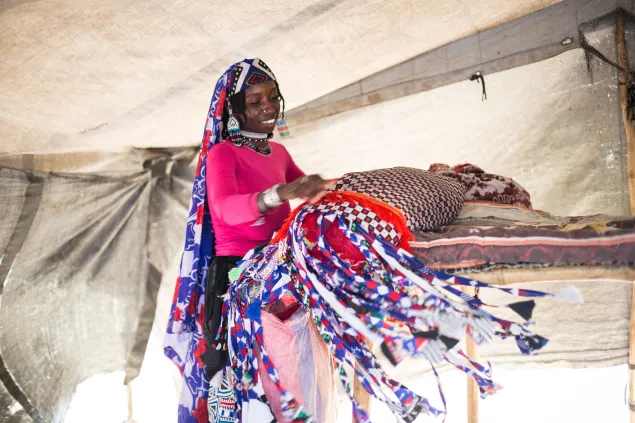
While preparing her bed for the night, Hawa Ahmad, explains:
“Vaccination is important so that we can see the animals get fat. We can see a lot of difference on the vaccinated animals. They have better and shinier skin and I think it is good that our animals can get treated with the drugs.”
Three people sleep inside this tent.
Keeping livestock alive and healthy is vital in South Sudan, where most of the population depends heavily on cattle, sheep and goats for their livelihood.
The International Committee of the Red Cross (ICRC) helps to protect animals from diseases and strengthen the resilience of communities affected by the armed conflict.

